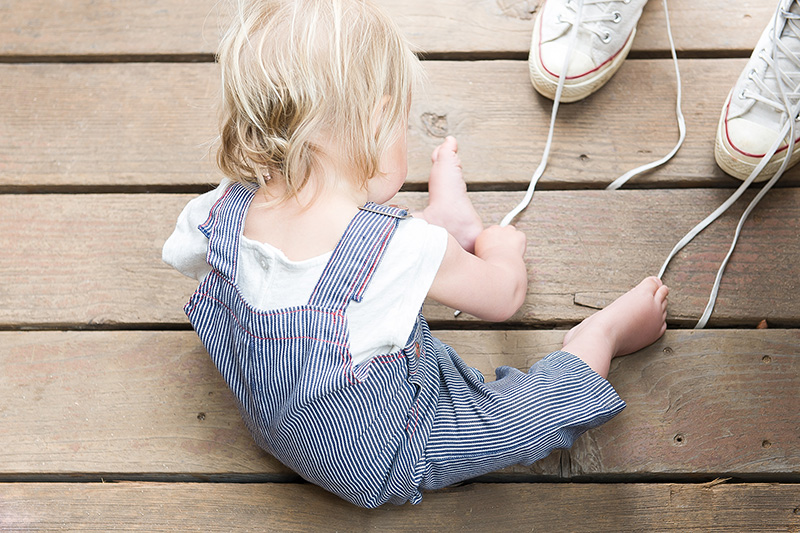Interview with mothermag about no ultimatums parenting.
How would you describe parenting with no ultimatums?
“It’s essentially governing with respect and not resorting to screaming, spanking, or shaming to get results. It is seeing children as intrinsically good and basing reactions to them on that knowledge. By looking to Denmark, we can see that this kind of parenting approach absolutely works in raising happy, confident adults. Teach respect, be respectful, and you will be respected are the main guidelines. It is worth noting that spanking has been illegal in Denmark for over 20 years. All Danes we interviewed considered it an unthinkable form of disciplining for a child.”
What’s so problematic with using ultimatums?
“Giving ultimatums to children essentially puts parents in a position where there has to be a winner and a loser. No one really likes to be given an ultimatum because it is always a power struggle. It never offers a win/win solution. What parents don’t realize is that they are often the ones who end up losing with this method, even if they feel they win in the moment. They lose closeness, because governing with threats and fear does not beget closeness. They lose respect, because children learn that boundaries don’t mean anything if parents don’t follow through with their threats. And they can lose perspective, thanks to getting bogged down with the battles instead of the war—the big lines of parenting. What is interesting to consider about using ultimatums is that it seems to be very tied to how we ourselves were raised. Most of the language we use with our children is inherited from our own parents. Many of us were raised with fear-based parenting and ultimatums, which is a very common American style of parenting. Therefore, it is understandable that we have nothing else in our mental toolbox when we get stressed. Knowing this makes it easier to be aware of why we are using ultimatums, yelling, or spanking and how we can start to make a conscious effort to change.”
How is no ultimatums parenting tied to the overall Danish parenting style?
“The Danes are a very democratic and empathic people and it’s no secret that the seeds are sewn very young. Children are respected as having a voice. They are seen as a growing equal in need of guidance, not a kid in need of control and discipline. How you see children has a direct affect on how you treat them. For example, one interesting difference in Danish language is that the term ‘terrible two’s’ doesn’t exist. Instead, they call it ‘trodsalder’ or ‘the boundary age.’ Thus, pushing boundaries is seen as normal and welcomed, not terrible. This makes a tremendous difference in how parents see and react to toddler behavior. Children are also listened to at all ages. They are constantly given explanations, even before they have words. This has a huge impact on a child’s sense of core self. A strong sense of core self comes from questioning and understanding what rules are, why they exist, and then truly incorporating them and valuing them. Being afraid of something called a rule is very different. With fear, the child won’t always know the reason he or she shouldn’t do something, they merely want to avoid being hurt or yelled at. This doesn’t foster closeness and trust, particularly down the road in the teen years. The investment in respect pays off in the long run. This is not to say that Danes are permissive or weak. Not at all! They establish clear rules and guidelines that children are expected to follow. However, they are very responsive to their children’s questions about the rules. They don’t immediately offer them an ultimatum if they don’t follow them, but rather try harder to help them understand why they should. This takes practice, but you absolutely can get better at it. Even without words you can make children understand reasons for rules. The truth is, children can understand so much. It is often in our own impatience, default settings, and unawareness of the ineffectiveness of fear-based parenting that make us fall back on ultimatums.”
How can other cultures implement the no ultimatums approach?
“There are so many ways! The main thing is to know the big lines, i.e. the values you and your partner feel are the most important and how you want to encourage and reinforce those. One of those values should ultimately be to maintain an atmosphere of respect, not fear. Make an agreement that if you or your partner is losing control of yourself, the other one helps take over (when possible). Remember, you don’t have to fight every battle. You just have to stay focused on the big lines. Try to stay calm and forget what others think. Often we get stressed around our own families and friends because we feel judged and this puts us on edge to make our kids behave. Children sense your stress and this can make them act out. You don’t have to prove anything to anyone. Teach respect, be respectful, and you will be respected. Maybe forcing them to finish their peas right now because you said so isn’t the most respectful request? Think about where and how you want to enforce the big lines. Do you want to do this in front of others, where you may also be stressed? Your big lines and your relationship to your child are what really matter. Another important tip: Have empathy for your children. Are they hungry? Tired? Upset? The more you understand the reason behind their behaviors, the stronger your relationship will be. Every age has a theme of what can be expected from it. The more you know about this, the easier it is to see your child’s behavior as normal and healthy, not terrible and annoying. How you choose to see your child will always affect your reaction to them. A problem is only a problem if it referred to as a problem. The cycle of what you give will come back to you. Good begets good, bad begets bad, out of control begets out of control, and calm begets calm.”
Think ultimatums could be a thing of the past in your own household? Let us know in the comments below.
For more Danish parenting advice, scoop up The Danish Way Of Parenting: A Guide To Raising The Happiest Kids in the World.






Sarah
I am really trying to practice parenting with no ultimatums. This is tough for me because I was not raised this way. It would be nice if there were more examples of real life situations and how to handle them. For example, when a 4 year old refuses to brush his teeth, hits his brother, won’t stay in his chair at a restaurant, a 2 year old cries for 30 min straight because he got woken up to early from his nap.
Carolanne Wright
One of my favorite parenting books of all time. I read it a few years ago and feel as though I need to read it again! As an American, the habit of impatience and authoritarian parenting run deep, unfortunately. The Danish Way of Parenting is a perfect reminder that there *is* a better way — and guides us as to how to find it.